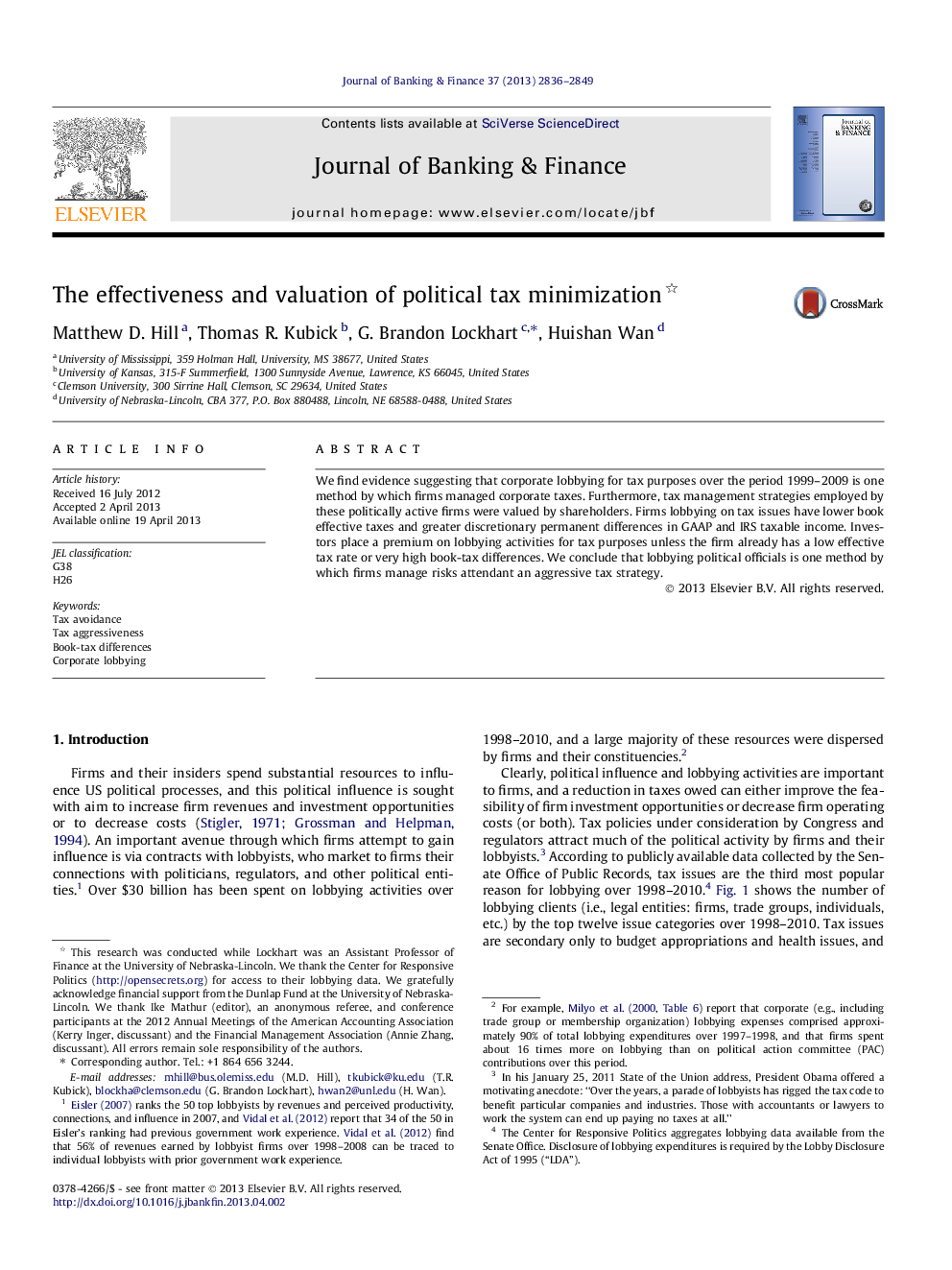| Article ID | Journal | Published Year | Pages | File Type |
|---|---|---|---|---|
| 5089282 | Journal of Banking & Finance | 2013 | 14 Pages |
â¢Support of the hypothesis that firms managed corporate taxes via lobbying activities.â¢Support for the hypothesis that shareholders value these political tax strategies.â¢Conclude that lobbying manages risks attendant an aggressive corporate tax strategy.
We find evidence suggesting that corporate lobbying for tax purposes over the period 1999-2009 is one method by which firms managed corporate taxes. Furthermore, tax management strategies employed by these politically active firms were valued by shareholders. Firms lobbying on tax issues have lower book effective taxes and greater discretionary permanent differences in GAAP and IRS taxable income. Investors place a premium on lobbying activities for tax purposes unless the firm already has a low effective tax rate or very high book-tax differences. We conclude that lobbying political officials is one method by which firms manage risks attendant an aggressive tax strategy.
